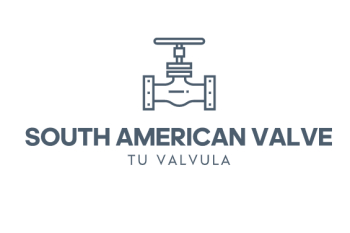Titanium Ball Valve
South American Valve is the greatest Titanium Ball Valve Supplier in Venezuela. A titanium ball valve is a type of industrial valve that uses a ball with a hole through the center (the ball) to control the flow of fluids in a pipeline. The ball rotates within the valve body, and when the hole in the ball is aligned with the pipeline, the valve is in the open position, allowing the fluid to flow freely. Conversely, rotating the ball by 90 degrees closes off the hole and stops the flow, putting the valve in the closed position.
The main feature that distinguishes titanium ball valves is the material of construction, which is titanium. As with any valve selection, it’s crucial to consider factors such as pressure ratings, temperature range, flow capacity, and the specific fluid characteristics to ensure the appropriate valve is used for the intended application. Titanium ball valves are an excellent choice for applications that demand the unique properties of titanium, especially when corrosion resistance is a critical requirement.
Parts
- Body
- Disc
- Stem
- Seal
- Ball
- Seat
- Actuator or handwheel
Benefits
- Corrosion Resistance: Titanium is highly resistant to corrosion, even in harsh and aggressive environments. This property makes titanium ball valves ideal for handling corrosive fluids found in various industries, including chemical processing, petrochemical, marine, and offshore applications.
- Lightweight: Titanium is a lightweight metal, which can be advantageous in applications where reducing overall weight is crucial, such as aerospace and marine industries.
- High Strength: Despite its lightweight, titanium exhibits excellent mechanical strength, providing durability and reliability to the ball valve.
- Biocompatibility: Titanium is biocompatible and non-toxic, making titanium ball valves suitable for use in medical and pharmaceutical applications.
- High Temperature Resistance: Titanium ball valves can withstand high temperatures, making them suitable for applications involving elevated temperature fluids.
- Low Maintenance: Due to its corrosion resistance and durability, titanium ball valves generally require minimal maintenance, reducing downtime and maintenance costs.
Applications
- Chemical Processing: Titanium ball valves are used in chemical plants to control the flow of highly corrosive chemicals, acids, and alkalis.
- Petrochemical Industry: In the petrochemical industry, these valves are employed in refining, production, and transportation processes to handle aggressive hydrocarbons and petrochemical products.
- Oil and Gas: In the oil and gas industry, especially in offshore and onshore applications, titanium ball valves are used for controlling the flow of crude oil, natural gas, and other corrosive fluids.
- Marine and Offshore: Due to their resistance to corrosion in seawater environments, titanium ball valves are used in marine applications, offshore platforms, and ships.
- Aerospace: Titanium ball valves find applications in aircraft systems where weight savings and corrosion resistance are essential.
- Water Treatment: Titanium ball valves are employed in water treatment facilities to control the flow of water and other fluids.
Description
- Body: Titanium Grade 2, Titanium Grade 5, CF8, CF8M, Cast Iron, Carbon Steel
- Ball: Titanium Grade 2, Titanium Grade 5, CF8, CF8M, Cast Iron, Carbon Steel
- Stem: SS304, SS316
- Gland Nut: SS304, SS316
- Seat: PTFE, RTFE, PPL
- Seal: PTFE
- Packing: PTFE, Graphite
- Nominal Size: 2? to 8?
- Nominal Pressure: Class 150 to Class 600, PN16 to PN63
- End Connection: Flanged
- Handle: Lever Handle, Locking Device Handle
- Operation: Manual, Pneumatic, Electric Actuated
Speciality Valve
Speciality Valve
Speciality Valve
Speciality Valve
Speciality Valve
Speciality Valve
Speciality Valve













